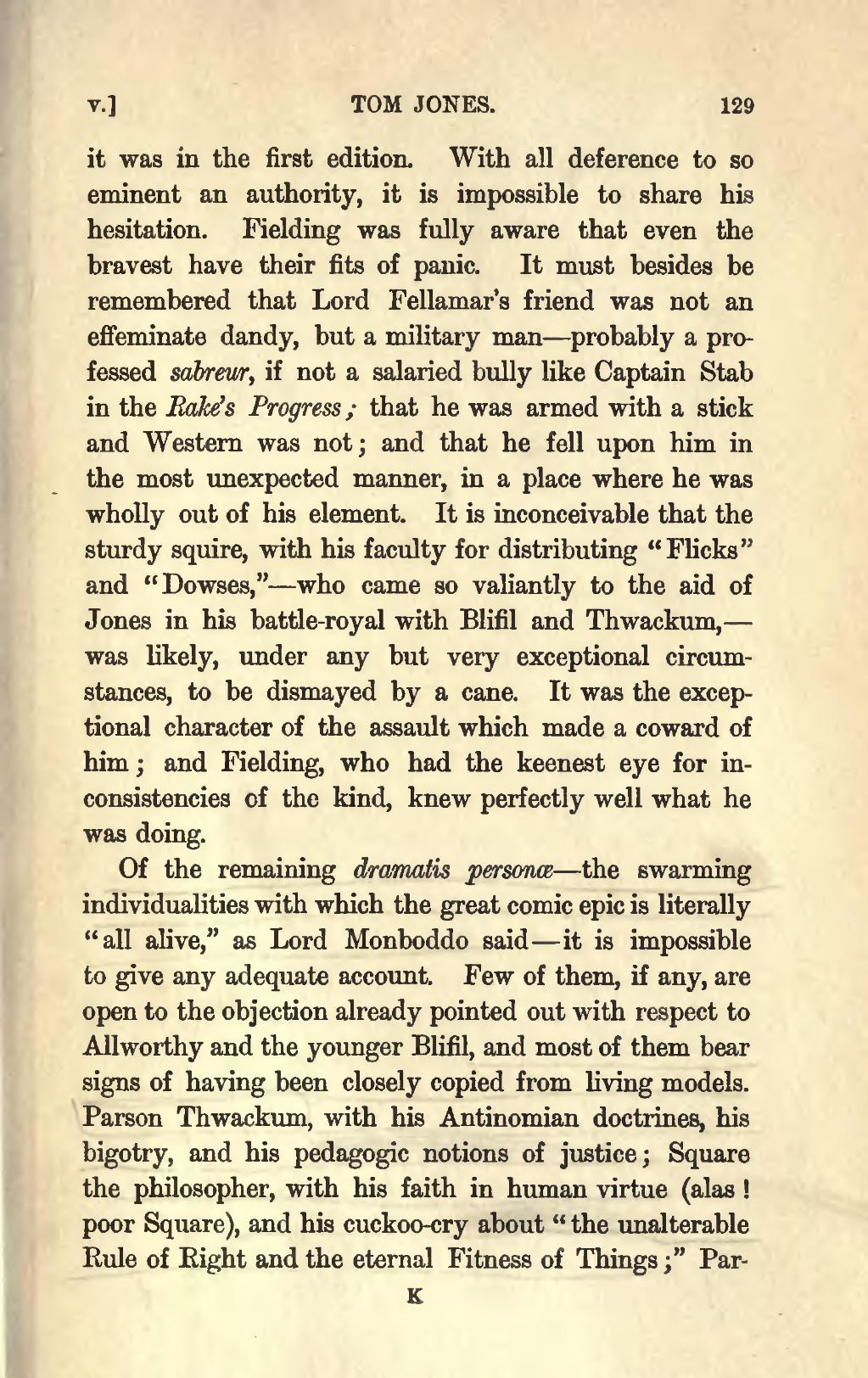it was in the first edition. With all deference to so eminent an authority, it is impossible to share his hesitation. Fielding was fully aware that even the bravest have their fits of panic. It must besides be remembered that Lord Fellamar’s friend was not an effeminate dandy, but a military man— probably a professed sabreur, if not a salaried bully like Captain Stab in the Rake’s Progress; that he was armed with a stick and Western was not; and that he fell upon him in the most unexpected manner, in a place where he was wholly out of his element. It is inconceivable that the sturdy squire, with his faculty for distributing “Flicks” and “Dowses,”—who came so valiantly to the aid of Jones in his battle-royal with Blifil and Thwackum,—was likely, under any but very exceptional circumstances, to be dismayed by a cane. It was the exceptional character of the assault which made a coward of him; and Fielding, who had the keenest eye for inconsistencies of the kind, knew perfectly well what he was doing.
Of the remaining dramatis personae—the swarming individualities with which the great comic epic is literally “all alive,” as Lord Monboddo said—it is impossible to give any adequate account. Few of them, if any, are open to the objection already pointed out with respect to Allworthy and the younger Blifil, and most of them bear signs of having been closely copied from living models. Parson Thwackum, with his Antinomian doctrines, his bigotry, and his pedagogic notions of justice; Square the philosopher, with his faith in human virtue (alas! poor Square), and his cuckoo-cry about “the unalterable Rule of Eight and the eternal Fitness of Things;” Partridge—
